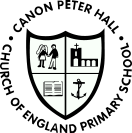Spanish is taught for 20 minutes per week across the school in a long term sequence that progressively develops the pupils’ skills in Spanish through regularly taught and well-planned weekly lessons in EYFS, KS1 and KS2 which will be taught by the class teacher. The four key language learning skills; listening, speaking, reading and writing are taught and all necessary grammar is covered in an age-appropriate way across the school.
Children progressively acquire, use and apply a growing bank of vocabulary, language skills and grammatical knowledge organised around age-appropriate topics and themes – building blocks of language into more complex, fluent and authentic language.
In addition, the children are taught how to look up and research language they are unsure of and they will have a bank of reference materials to help them with their spoken and written tasks going forward. This bank of reference materials will develop into a reference library to help pupils recall and build on previous knowledge, in line with the principles of the science of learning.
Lesons offering appropriate levels of challenge and stretch are taught at all times to ensure that pupils learn effectively, continuously building their knowledge of and enthusiasm for Spanish.
All content is continuously updated and reviewed annually, creating a dynamic programme of study that is clearly outlined in both long-term and short-term planning.
Following the principles of the Science of Learning, children build on previous knowledge gradually as their foreign language lessons continue to recycle, revise and consolidate previously learnt language whilst building on all four language skills: listening, speaking, reading and writing.
Knowledge and awareness of required and appropriate grammar concepts are taught throughout all units at all levels of challenge.
Grammar rules are taught in the following progressive sequence:
- We start with nouns and articles and 1st person singular of high frequency verbs in Early Learning units.
· We move on to the use of the possessive, the concept of adjectives, use of the negative form, conjunctions/connectives and introduce the concept of whole regular verb conjugation in Intermediate units.
· We end with opinions and introduce the concept of whole high frequency irregular verb conjugation in Progressive units.
A typical Spanish lesson is as follows:
- Each lesson incorporates interactive whiteboard materials to include ample speaking and listening tasks within a lesson.
· Lessons incorporate challenge sections and independent written activities that will be offered with appropriate levels of scaffolding and challenge.
· Reading and writing activities will be offered in all units. Some extended reading and writing activities are provided so that native speakers can also be catered for.
· Extending writing activities are provided to ensure that pupils are recalling previously learnt language and, by reusing it, will be able to recall it and use it with greater ease and accuracy. These tasks will help to link units together and show that pupils are retaining and recalling the language taught with increased fluency and ease.
A typical unit of learning for Spanish is as follows:
Units are progressive within themselves as subsequent lessons within a unit build on the language and knowledge taught in previous lessons. As pupils progress though the lessons in a unit, they will build their knowledge and develop the complexity of the language they use. We think of the progression within the 6 lessons in a unit as ‘language Lego’. We provide blocks of language knowledge and, over the course of a 6 -week unit, encourage pupils to build more complex and sophisticated language structures with their blocks of language knowledge.
Pupil learning and progression is assessed in line with school policy.

